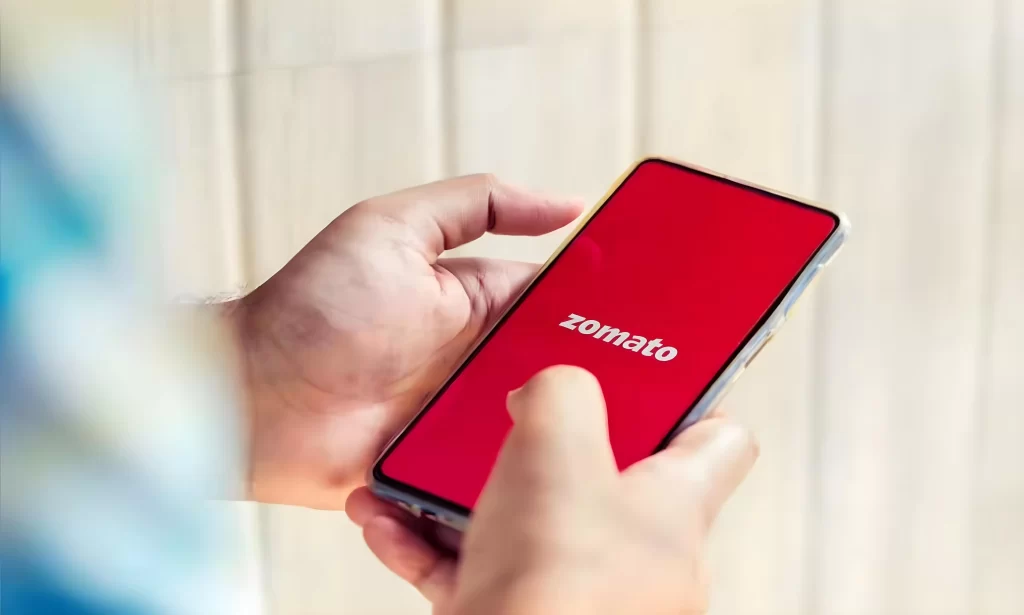Zomato has increased its platform fee from ₹7 to ₹10, citing operational costs and the need to maintain service levels during the upcoming festive season. The fee hike, which comes just ahead of the highdemand period, reflects the food delivery giant’s efforts to keep services running smoothly despite the expected surge in orders.
A notification on Zomato’s app stated, “This fee helps us pay our bills to keep Zomato running. To maintain services during the festive season, it has increased slightly.” The platform fee was first introduced in August 2023 at ₹2, then incrementally increased to ₹3 before being raised again to ₹4 on January 1, 2024. The current adjustment to ₹10 follows this pattern, demonstrating Zomato’s strategy of gradually increasing the charge to offset its rising operational costs.
Strong Financial Performance Drives Growth
Zomato’s decision to raise its platform fee comes at a time when the company has shown significant financial growth. In its financial report for the second quarter ending September 30, 2024, Zomato posted a consolidated net profit of ₹176 crore. This marks a substantial jump compared to the ₹36 crore net profit during the same quarter last fiscal year. The company’s revenue from operations also saw a notable increase, standing at ₹4,799 crore, compared to ₹2,848 crore in the yearago period.
The increased revenue comes hand in hand with higher total expenses, which were recorded at ₹4,783 crore for this quarter. A year ago, total expenses were much lower at ₹3,039 crore. This rise in both revenue and expenses underlines Zomato’s growing scale and its investment in expanding operations, particularly ahead of hightraffic periods like the festive season.
Platform Fee Supports Operational Stability
The platform fee hike is intended to help Zomato cover essential operational expenses, which can skyrocket during periods of increased demand, such as festivals. This is a crucial move to ensure that Zomato can continue offering timely deliveries while managing the logistical challenges that come with high order volumes.
According to industry experts, such fee hikes are becoming a common practice among food delivery services. By passing on a portion of the increased operational costs to consumers, companies like Zomato are able to sustain their services during peak periods without compromising on delivery speed or quality.
Although the fee hike may seem minor, it plays a critical role in helping the company manage its growing expenses. Customers are generally more understanding of these surcharges during busy times, as long as the service remains reliable and efficient.
Capital Raising for Future Growth
Zomato is not just relying on platform fees to bolster its finances. The company has also secured board approval to raise ₹8,500 crore through a qualified institutional placement of equity shares. This move is aimed at enhancing Zomato’s financial flexibility, enabling it to fund future expansion efforts and investments in technology and logistics infrastructure.
With the additional capital, Zomato will be in a stronger position to innovate and improve its offerings, which may include reducing delivery times, improving customer service, or launching new features on its platform. As competition in the food delivery space intensifies, these investments will be crucial for Zomato to maintain its leadership position in the market.
What’s Next for Zomato?
As the festive season approaches, Zomato’s platform fee hike is a small yet significant change that will help the company maintain operational stability during peak demand. With impressive financial performance and plans to raise additional capital, Zomato appears wellpositioned for continued growth.
For users, the slightly increased fee is a tradeoff for ensuring reliable service during the busiest time of the year. As Zomato strengthens its operations, it’s likely to continue innovating to meet customer needs in an everevolving market.

